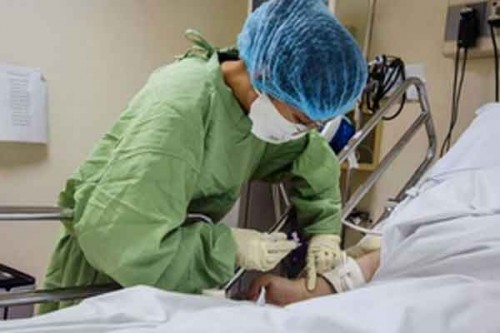Philippines healthcare worker gap rises to 190,000

Manila, May 23 (IANS) The number of healthcare workers shortage in the Philippines has risen to 190,000 even as the Southeast Asian country continues to export health workers, Philippine Health Secretary Teodoro Herbosa said.
Herbosa said on Wednesday that the healthcare workers include doctors, nurses, midwives, dentists, physical therapists, medical technologists, laboratory technicians, and radiologic technologists, Xinhua news agency reported.
"We will need the human resources, so we saw the gap," Herbosa told a press briefing at the presidential palace after discussing the healthcare issues with President Ferdinand Romualdez Marcos.
According to Herbosa, 20 state universities and colleges in the Philippines now offer medical courses.
The Department of Health is now considering offering other benefits to nurses in addition to the basic salaries to entice them to stay in the country, such as possible housing and car assistance, healthcare insurance, and higher education and learning assistance.
The Philippines continues to supply the world with nurses and other healthcare workers.
From January to March this year, lawmaker Marvin Rillo, the Vice-Chairman of the House Committee on Higher Education and Technical Education, said nearly 7,000 nursing graduates took the US licensure exam.
"We expect a large number of Philippine nursing graduates to persist in pursuing their career aspirations in America and other foreign labour markets as long as we continue to underpay them here at home," Rillo said recently.
The exodus of Filipino health workers continued over the years due to low wages, poor working conditions, and delayed allowances and benefits. The high salaries and benefits that hospitals abroad offer to entice more and more Filipino nurses, making it difficult for the Philippine government to convince them to stay.
Many nurses ditch hospital work to take on more lucrative and less stressful jobs, such as in the business outsourcing processing industry.
Last year, the Philippines green-lighted the deployment of unlicensed nurses to work as "critical care associates" in hospitals to address the country's nurse shortage.
Marcos said allowing "nursing underboard graduates" or nursing graduates who have yet to pass the government licensure examination is vital in alleviating what he described as a "chronic" staff shortage.

|

|

